Displayed Words
Ingeborg Bachmann, Angélica Freitas, Hassan Khan, Otis Mensah, Rafael Moreno, Nazanin Noori, Nhã Thuyên, Kinga Tóth
Language, text, and poetry at Bezirksamt Mitte, Rathaus Tiergarten and online on displayedwords.org
Bezirksamt Mitte, Rathaus Tiergarten
Mathilde-Jacob-Platz 1
10551 Berlin
(Google Maps)
U9 Turmstr.
M10 U Turmstr.
Bus 101, 123, 187,245, M27 U Turmstr.
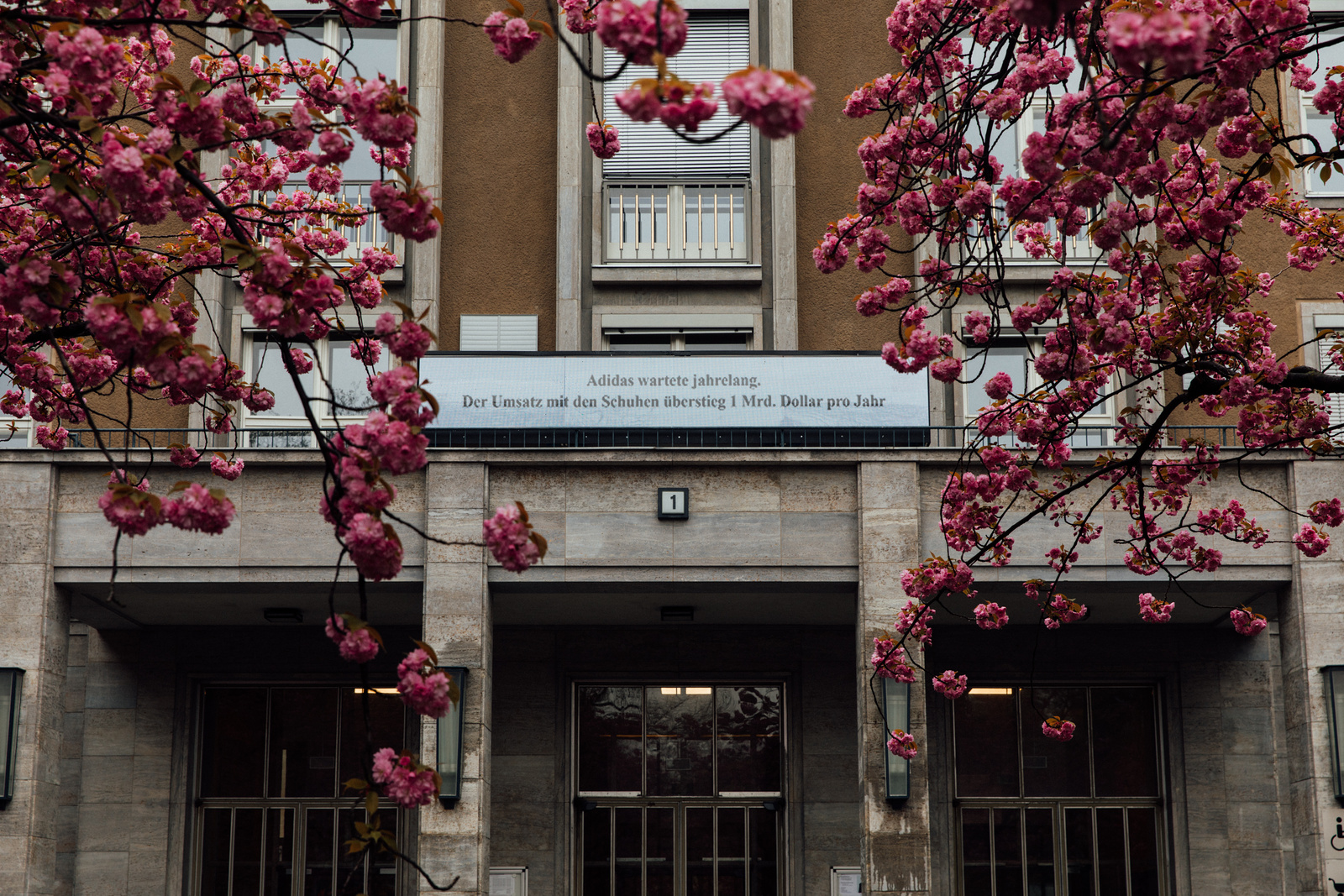
Hassan Khan, Totem & Taboo, Installation view, Displayed Words, Bezirksamt Mitte, Rathaus Tiergarten, CCA Berlin, 2024. Photo: Diana Pfammatter/CCA Berlin
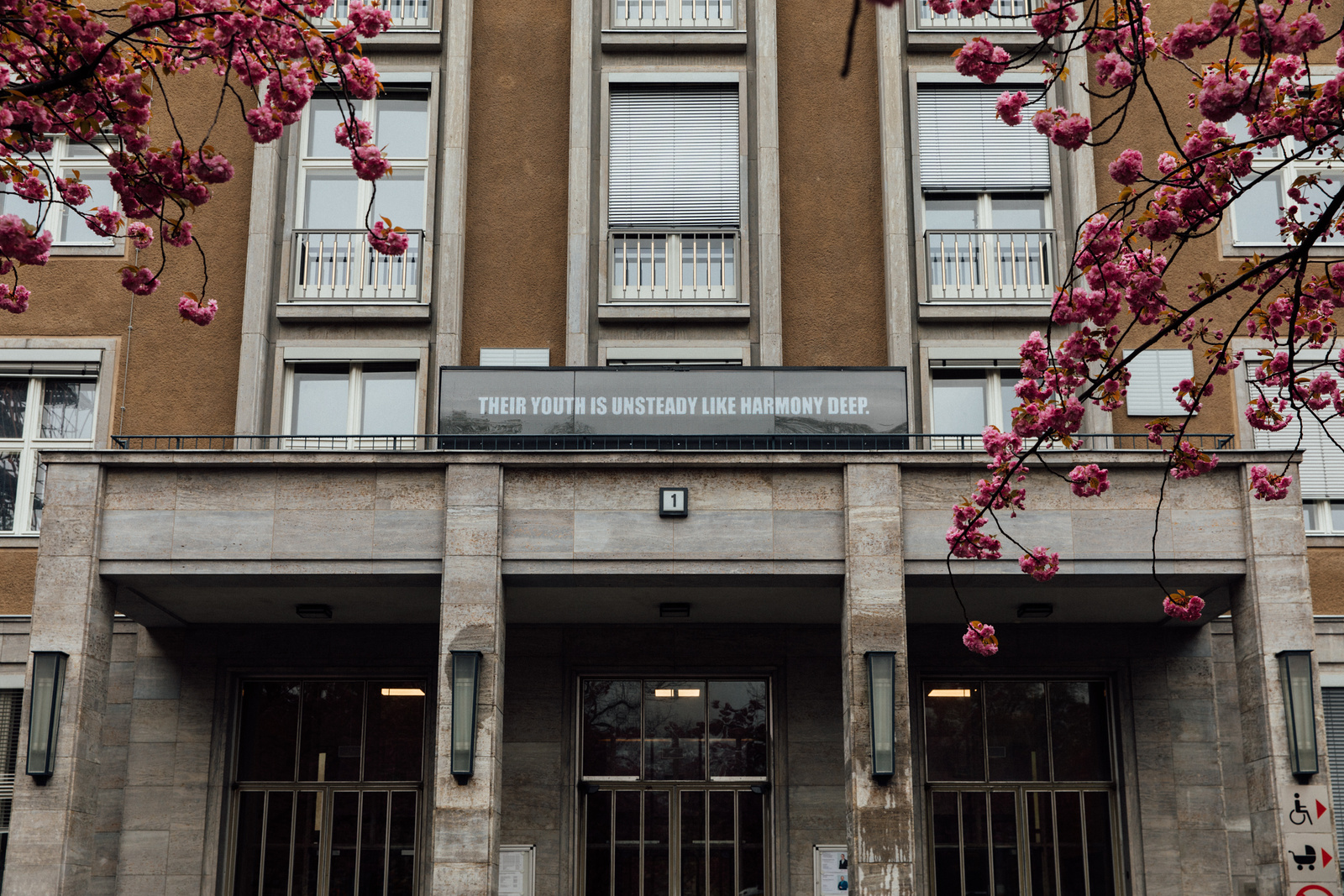
Nazanin Noori, LAMENTATION 1,2, Installation view, Displayed Words, Bezirksamt Mitte, Rathaus Tiergarten, CCA Berlin, 2024. Poto: Diana Pfammatter/CCA Berlin
Displayed Words is an experiment in thinking with language, text, and poetry through digital format and in public space. For its second edition, Displayed Words takes place at Bezirksamt Mitte, Rathaus Tiergarten, where texts by Ingeborg Bachmann, Angélica Freitas, Hassan Khan, Otis Mensah, Rafael Moreno, Nazanin Noori, Nhã Thuyên, and Kinga Tóth are presented on a digital display panel on the balcony above the main entrance. Now, for the final month, works by Hassan Khan and Nazanin Noori are on view.
Totem & Taboo is a text work by artist Hassan Khan, commissioned by CCA Berlin for Displayed Words. The poem consists only of quotes extracted from a 2023 New York Times article that investigates the termination of the decade-long partnership between Adidas and Kanye West, along with the ambivalences that emerged in the fallout. Khan’s method involves an intentional process of sampling the existing article to produce a publicly accessible narrative of a true story that always keeps the context in sight. By situating the work at such a public site—the Rathaus Tiergarten, the piece engages with current local and global debates, while offering a critical examination of media rhetoric and the corporate logic of representation when it comes to discrimination and antisemitism. The public displaying of the New York Times article—now rearranged and given a new rhythm, charges the words and phrases with a critical agency, prompting viewers to contemplate the following questions: Who is complicit and who is held accountable by which standards? What speech is deemed acceptable or dismissible, and under what circumstances? What happens when profit stands in the way of accountability?
Nazanin Noori’s LAMENTATION 1,2, a new poem by the artist, is also on display. “LAMENTATION 1,2” is a song about mourning and grief. With a background in experimental music and theatre, Noori’s practice has expanded to text and poetic mediums in recent years, continuing her exploration of the psychic dimensions of protest and political mobilization. Consisting of two interwoven voices that build a counterpoint with each other, the poem stages a scene of relation that blurs the line between the one who mourns and the mourned. With a poignant air, the work opens itself up to memories and associations of war, intergenerational trauma and the loss of home and kin.
The Rathaus is a site of bureaucracy pertaining to social existence that everyone will have to come across regardless of race, gender, class, religion, status, or background. The collaboration between CCA Berlin and Bezirksamt Mitte, in cooperation with the DAAD Artists-in-Berlin Program, focuses on displaying poetry in such a public site and brings together a group of writers/artists whose practice oscillates between different fields. These artists are working beyond conventional disciplinary borders, drawing from each medium’s specific formal characteristics, for an emancipated language to emerge. They invent new grammars and vocabularies, blending fiction with fact, poetry with politics, playing with words to create new ways of enunciating and imaging. At a time when identities are becoming more layered and meanings more fractured, the ambivalence of language as a well of resource nevertheless can generate infinite possibilities for new narratives to come.
Displayed Words wishes to ask: Who and what defines the space in which words are made legible and meanings are produced? How does the perception of text change from one medium to another? Displayed Words plays with the intelligibility of text and its manifold displays; it also poses questions pertaining to context within which literature and poetry can be perceived and understood. Finally, it asks how text is mediated, and in which language dominant discourse and literature are communicated in a metropolitan like Berlin. What about languages considered minoritarian, those one hears across the city in everyday encounters, such as Russian, Turkish, Arabic, Vietnamese, or Spanish ...?
The project also raises the question of translation, of the plurality of idioms, registers and lexicons that complicate our understanding of the world rather than reaffirm it. Displayed Words desires to refigure the relationship between writer and reader, and reflects on ways of inhabiting a living, vibrant and sometimes fragile language beyond the confines of book or page. We want to explore new ways of understanding poetry in relation to urban space, its realities, utopias and dreams, the speed at which it changes and evolves, sometimes also its mess and humdrum, and the multitude of encounters the city harbors within.
Supported by Senatsverwaltung für Kultur und Gesellschaftlichen Zusammenhalt with project funds from Draussenstadt, and the DAAD Artists-in-Berlin Program.
The display shows:
15.12.2023–31.01.2024
Otis Mensah, Nhã Thuyên
01.02.–29.02.2024
Rafael Moreno, Kinga Tóth
01.03.–31.03.2024
Angélica Freitas, Ingeborg Bachmann
01.04.–30.04.2024
Nazanin Noori, Hassan Khan
The program will be accompanied by a series of readings.
14 March, 2024, 7 pm, daadgalerie
Reading with Nhã Thuyên and Angélica Freitas26 March, 2024, 7 pm, Bärenzwinger
Reading with Kinga Tóth and Rafael Moreno

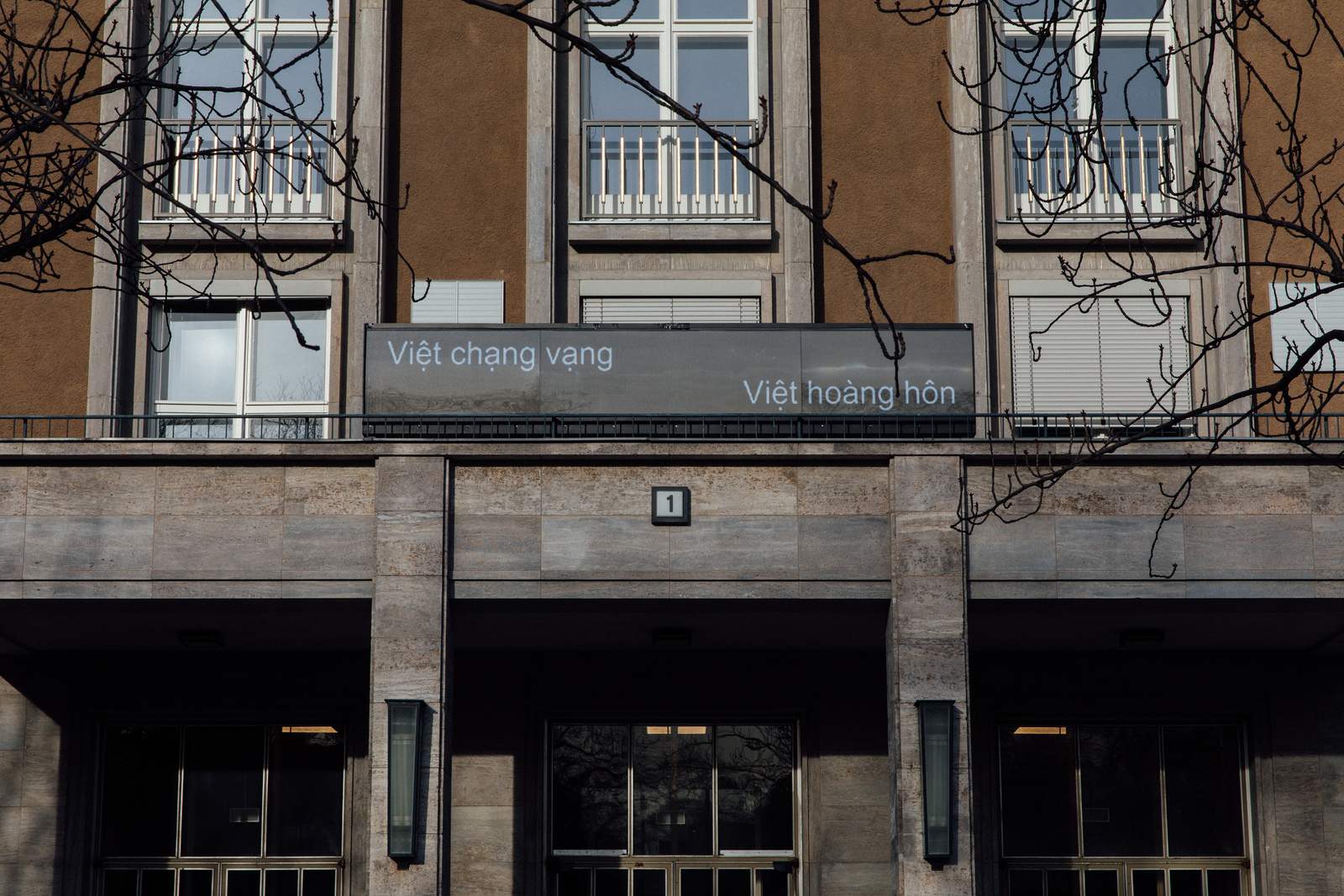
Nhã Thuyên, Displayed Words, Installation view, Bezirksamt Mitte, Rathaus Tiergarten, CCA Berlin, 2023. Photo: Diana Pfammatter/CCA Berlin
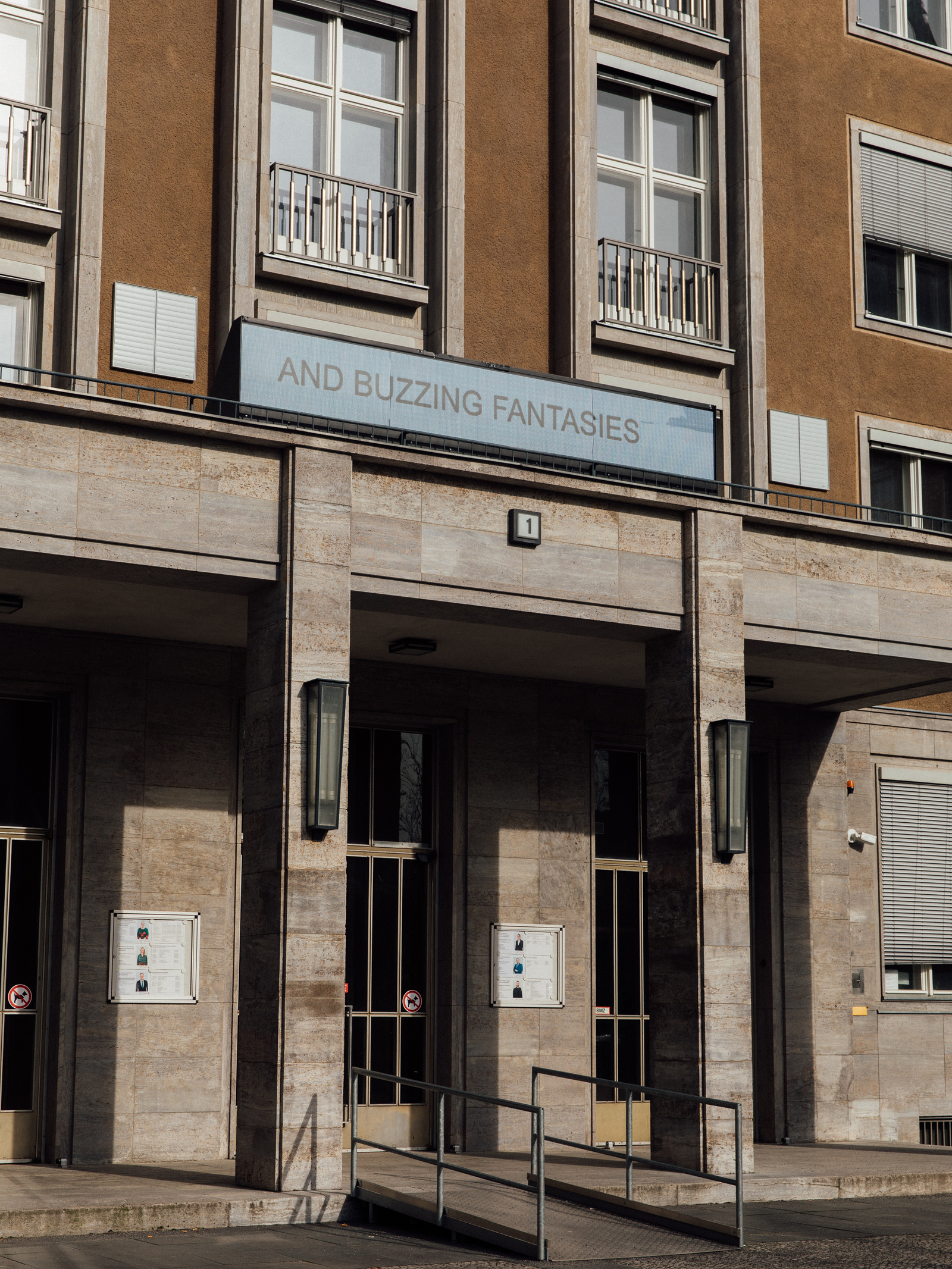
Rafael Moreno, Displayed Words, Installation view, Bezirksamt Mitte, Rathaus Tiergarten, CCA Berlin, 2023. Photo: Diana Pfammatter/CCA Berlin
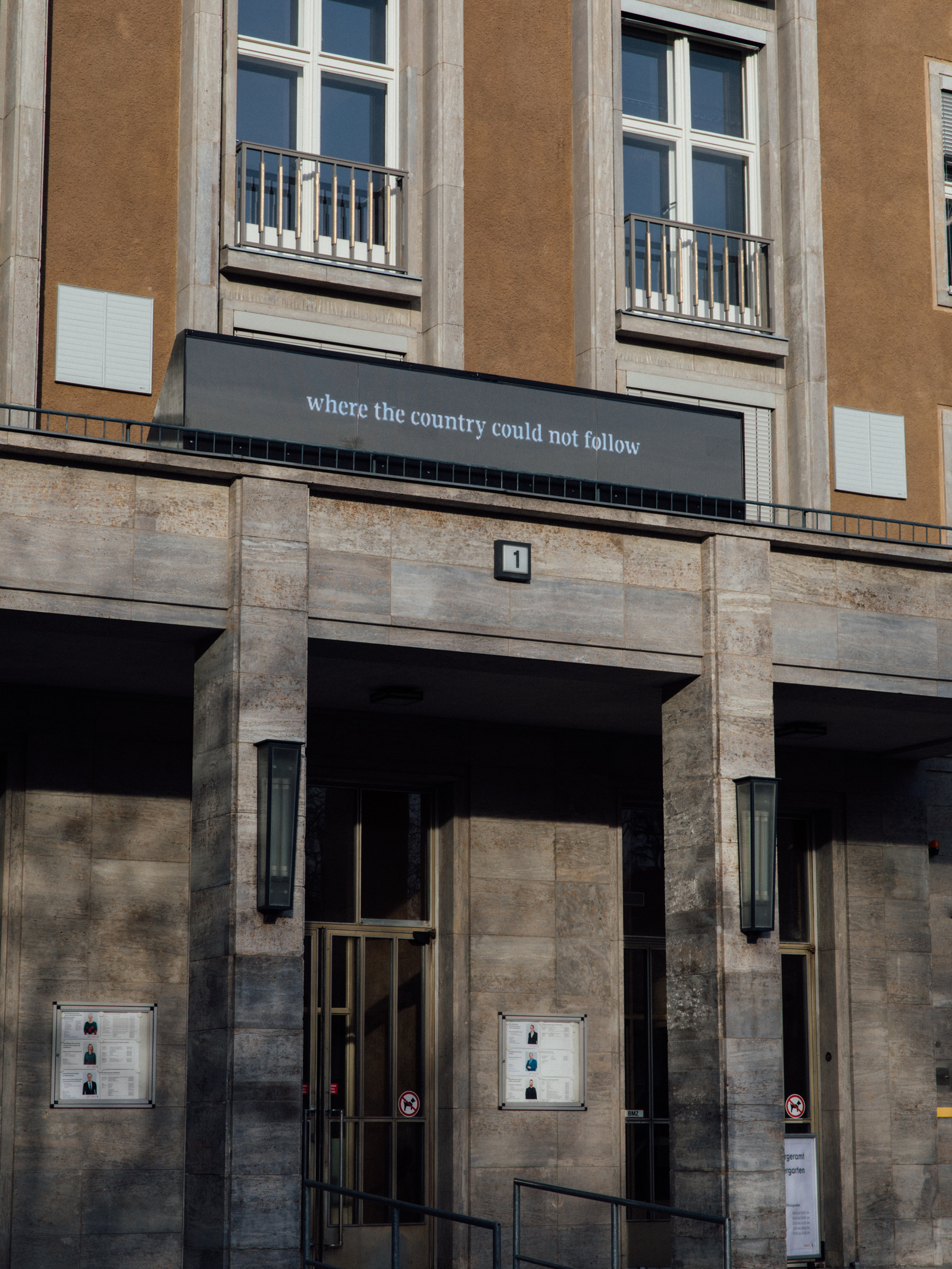
Otis Mensah, Displayed Words, Installation view, Bezirksamt Mitte, Rathaus Tiergarten, CCA Berlin, 2023. Photo: Diana Pfammatter/CCA Berlin
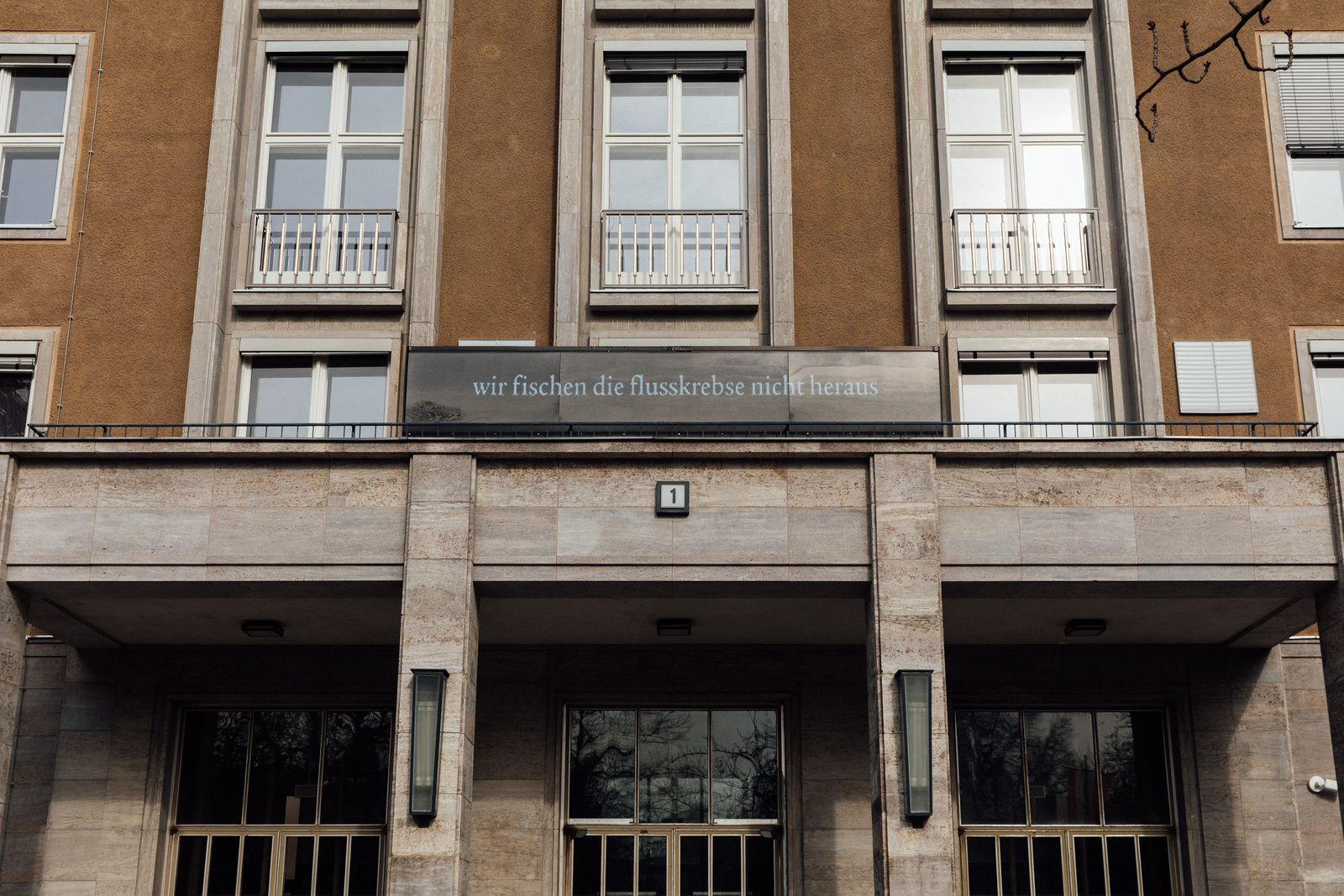
Kinga Tóth, Displayed Words, Installation view, Bezirksamt Mitte, Rathaus Tiergarten, CCA Berlin, 2023. Photo: Diana Pfammatter/CCA Berlin